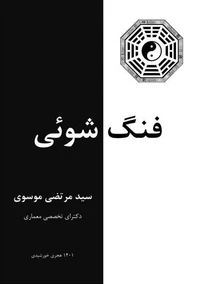Shiva Sutras is a collection of seventy seven aphorisms that is known as the basis and foundation of spiritual and mystical traditions. It has written in the ninth century by Indian sage, Vasugupta. It is said that Vasugupta lived near Mahadeva (Great goddess) Mountain in a village in the Heravan valley at the end of a area named Shalimar Bagh today, near Srinagar (Centre of Jamu and Kashmir state).
It is narrative that he has received these words in his dream Meet with a spiritual teacher or a demigod. Another narrative is that Lord Shiva spoke with him in dream and ordered him to go to a special stone and he found the teachings over there. This rock called Shankaropala is still visited as the shrine by devotees. Another theory is that Lord Shiva taught to Vasugupta in dream. Whatever the truth, common subject in these stories and testimonials is Emphasis on this doctrine as a divine origin and these are very valuable teachings of Lord Shiva, Hindu Goddess.
Historically, Shivism and the primary school of Kashmiri Shivism are a Sufist or Tantric tradition. Tantra followers know own selves Independent of the main Vedic schools and their movement of thought and practice and beyond the laws that had been enacted by them. Some interpretation has written on Shiva Sutras by contemporaries and successors of Vasugupta. Most famous of them belongs to Kshemeraja's Vimarshini (10 C.
E) that is translated to English by Jaideva Singh and Swami Lakshman Joo. Another explanation is called Vartika written By Bharskara (eleventh century) and has been translated into English by Marc Dikzhkufski. However, there are many English translations and other languages ??such as German, French and Italian of Shiva Sutras but there is not a deeply describe about lord Shiva to understand this important written.
Considering the importance and role of Shiva in the Vedic and Hindu philosophical and religious tradition and various aspects of Indian culture with all the world Culture , mysticism , philosophy and history, it is very necessary that the basic Vedic and Hindu texts to be translated into English language and described deeply. So in one of the first steps in my approach to translate and write in Hindu religion, I have come to Shiva and his teachings.
Hope that with my little knowledge in transformation the great and profound words of Lord Shiva I could be very modest beginnings for this relation.
Shiva Sutras is a collection of seventy seven aphorisms that is known as the basis and foundation of spiritual and mystical traditions. It has written in the ninth century by Indian sage, Vasugupta. It is said that Vasugupta lived near Mahadeva (Great goddess) Mountain in a village in the Heravan valley at the end of a area named Shalimar Bagh today, near Srinagar (Centre of Jamu and Kashmir state).
It is narrative that he has received these words in his dream Meet with a spiritual teacher or a demigod. Another narrative is that Lord Shiva spoke with him in dream and ordered him to go to a special stone and he found the teachings over there. This rock called Shankaropala is still visited as the shrine by devotees. Another theory is that Lord Shiva taught to Vasugupta in dream. Whatever the truth, common subject in these stories and testimonials is Emphasis on this doctrine as a divine origin and these are very valuable teachings of Lord Shiva, Hindu Goddess.
Historically, Shivism and the primary school of Kashmiri Shivism are a Sufist or Tantric tradition. Tantra followers know own selves Independent of the main Vedic schools and their movement of thought and practice and beyond the laws that had been enacted by them. Some interpretation has written on Shiva Sutras by contemporaries and successors of Vasugupta. Most famous of them belongs to Kshemeraja's Vimarshini (10 C.
E) that is translated to English by Jaideva Singh and Swami Lakshman Joo. Another explanation is called Vartika written By Bharskara (eleventh century) and has been translated into English by Marc Dikzhkufski. However, there are many English translations and other languages ??such as German, French and Italian of Shiva Sutras but there is not a deeply describe about lord Shiva to understand this important written.
Considering the importance and role of Shiva in the Vedic and Hindu philosophical and religious tradition and various aspects of Indian culture with all the world Culture , mysticism , philosophy and history, it is very necessary that the basic Vedic and Hindu texts to be translated into English language and described deeply. So in one of the first steps in my approach to translate and write in Hindu religion, I have come to Shiva and his teachings.
Hope that with my little knowledge in transformation the great and profound words of Lord Shiva I could be very modest beginnings for this relation.

 , qui est-ce ?
, qui est-ce ?